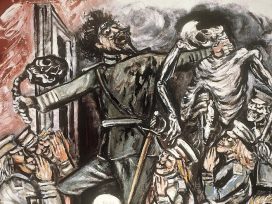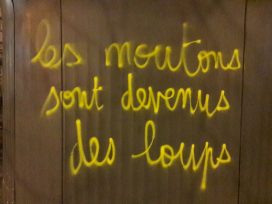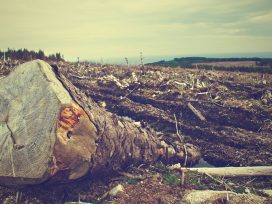How democracies die, fast and slow
Sudden death stories of democracy do us a disservice. The truth is that democracy can be destroyed in multiple ways, at different tempos. The slowest of these – environmental degradation – is a consequence of the anthropocentric ideal underlying democracy itself.
The writing is on the wall. Things are serious: the ‘great democratic revolution’ of modern times, as Tocqueville once called it, appears to be spluttering to a halt. Some observers, recalling the disasters of the 1920s and 1930s, when most new democracies perished, are suggesting that something like an anti-democratic counterrevolution on a global scale has begun. Their clichéd simplifications such as talk of an epic ‘democracy versus autocracy’ global conflict are questionable, but most of the symptoms on which they base their assessments are real enough.
They come to us as daily breaking news. Foul wars in Africa, the Arab world and Europe. Neoliberalism. Surveillance capitalism. Greedy banks. Inflation. Pestilence. Broken party systems. Lying, scheming politicians. Political corruption. Sex scandals. Domestic violence. Street shootings. Rising middle class anxiety. Angry underclass indictments of democracy as a mere façade for plutocracy. Populism. Demagogues. Resurgent bigotry. Religious intolerance. Media untruths. The extinction of species. Weird weather. Crop failures and famine. Talk of the decline of the West. China. Russian despotism.
Catastrophism
News sensationalism feeds the conviction of journalists and other commentators that democracy is headed for hell. Setting aside the many exceptions and positive countertrends of our age – democratically well-governed cities and resilient judiciaries, women’s unflagging struggles for dignity and success stories such as in India, where democracy took root because it was the best way of guaranteeing dignity to many millions of poor citizens in a post-colonial society of multiple faiths and languages – they are sure democracy is ‘backsliding’ towards a cliff edge. Catastrophism is their thing. It portrays the death of democracy as an instant drama: uncertainty grips things by the neck, the familiar rapidly falls apart and liminality triumphs; history happens in quick time. According to this first view, power-sharing democracies typically suffer sudden death, in puffs of smoke, street fighting and rat-a-tat gunfire.
Catastrophists have a point. During the past decade, examples of the quick death of democracy are easily found. They include the surprise military coup d’état against President Mohammed Morsi in Egypt in 2013, and the constitutional coups and military overthrow of elected governments in Thailand, Myanmar, Niger, Chad, Mali, Guinea and Sudan. The sudden reversal of democratization processes triggered by outside military intervention, or threats of armed invasion, are also on the list: Israel’s crushing of the electoral victory of Hamas in the Palestinian legislative elections in 2006; Russian’s full-scale invasion of Ukraine; and the United States’ military support for King Hussein’s clampdown on an opposition-dominated parliament in Jordan.
Recent insurrections against democracy also seem to confirm the catastrophist view of democide. These mob rebellions are as spooky as they were unexpected.Nobody anticipated that Washington would witness a well-organized assault on the Capitol by a mob hellbent on overturning an election result, cheered on from the top by a defeated president and his buddies.
Or that in Frankfurt, a prince, allegedly backed by a 20,000-strong network of far-right extremists known as Reichsbürger – among them a celebrity chef, a judge, doctors, an arms dealer, and ex-police officers and soldiers – would be arrested in a dawn police raid, on suspicions of leading a plot to storm parliament and violently overthrow the elected government to establish a new German Kaiserreich.
And few predicted that in Brasília thousands of pro-Bolsonaro citizens would invade and occupy the Three Powers Square – or that these angry citizens, calling for military intervention, would storm the presidential palace with the help of local police, where they destroyed works of art, hurled broken furniture through windows, ransacked ceremonial rooms in the Supreme Court, stole computer equipment containing sensitive information, and activated sprinkler systems to flood parts of the Congress building.
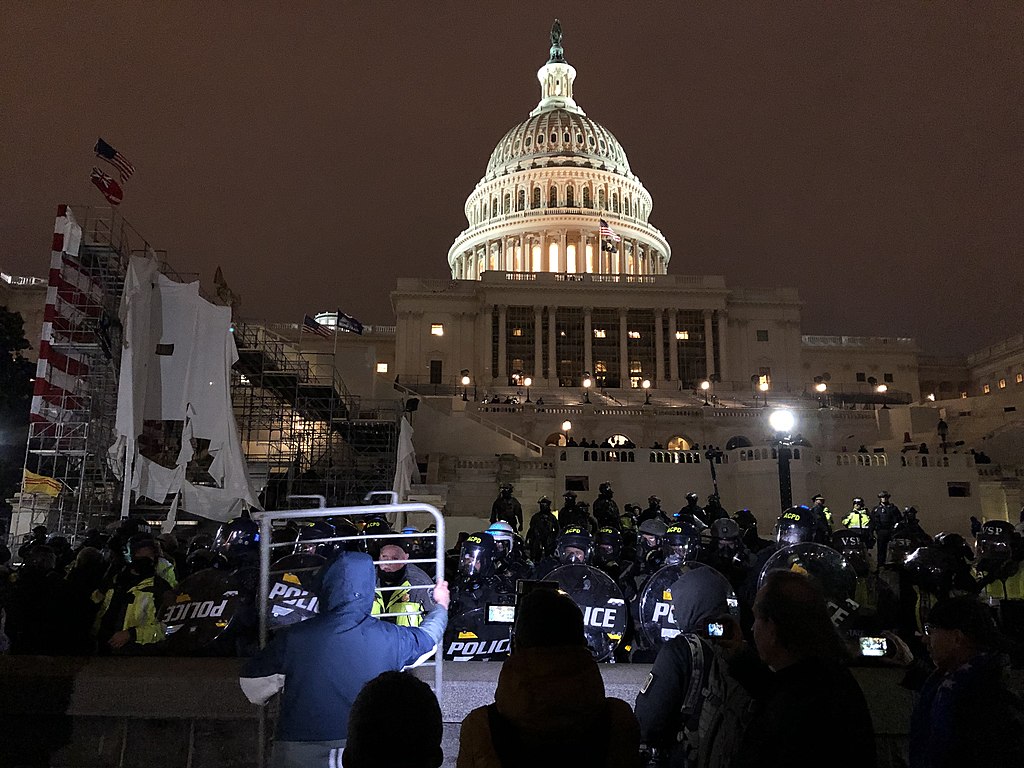
Storming of the United States Capitol. Image by Tyler Merbler via Wikimedia Commons
Gradualism
Journalists with a taste for headline drama pounce on these events. Hyping things up by likening them to Hitler’s botched 1923 Beer Hall Putsch, they say democracy is ‘backsliding’ towards an abyss. Their exaggerations have merit, reminding us of democracy’s great fragility: how it takes at least a lifetime, or longer, to build but can be undone in einem Augenblick. But the sensationalist, sudden death stories told by journalists and others do us a disservice. The troubling truth is that democracy can be destroyed in multiple ways, in different tempos. These different rhythms need to be identified and understood, not because of some perverse fixation on morbidity but, rather, to equip friends of democracy with an early warning detector, to help them anticipate and deal with its degradation, and work for its defence and renewal in nuanced and plural ways.
But let’s not get ahead of ourselves. Consider, to begin with, the key fact – long ago emphasized by Juan Linz and other scholars – that the death of democratic institutions by gradual cuts is more common than catastrophists suppose. High-level dramas that unfold allegrissimo and furioso reflect only one of democide’s rhythms. It turns out that the death of democracy can happen lentissimo, through protracted, steady accumulations of high-level political grievances and knife-edged manoeuvres.
Gradualist interpretations of democide emphasize the cunning and creativity of political actors and the indeterminacy of events. The downfall of democracy is never a foregone conclusion. Serendipity can come to democracy’s rescue: a demagogue suddenly dies, an earthquake happens, a bank collapses, there’s defeat in war; things can always go in more than one direction. To paraphrase Marx, democide happens because it is chosen by political actors in political circumstances not of their choosing. Critically important, runs the gradualist argument, are the bitter contests between political forces favouring the maintenance and/or reform of a democratic political system and saboteurs who don’t care about its fate, or who actively yearn for its overthrow. The explanation notes that in any given crisis of democracy – 1920s Weimar Germany and Poland, Bolivia in late 2019, Peru 2023 – the political dynamics are normally stormy, radically confusing and often terrifying, always riddled with uncertainty.
Paralysed by unsolved problems, a democratically elected government grows unpopular. There are loud calls for its resignation. In the shadows, anti-government forces hatch plans for its deposition. Disloyal opposition rallies. There are wild rumours, fears of outside military intervention, talk of conspiracies, street protests that turn violent. With mounting civil unrest, the police, intelligence services and army grow agitated. The elected government responds by granting itself emergency powers, proroguing the parliament, reshuffling the military high command and imposing media blackouts. Things come to the boil. The forces promoting disorder and the enemies of democracy take heart. As the government totters, the army moves from its barracks onto the streets to quell unrest and takes control. The slow-motion drama stops. Democracy is buried in the grave it slowly dug for itself.
Populism and its demagogues
An elections-centred variant of the gradualist explanation of democide counts as a third interpretation of how democide happens. It emphasizes that democracy perishes when a democratically elected populist government strategically manipulates and cunningly wrecks the institutions of constitutional democracy. Drawing on recent cases such as Hungary, Kazakhstan, Serbia, Singapore and Turkey, in The New Despotism I show that ballots can be used to ruin democracy just as effectively as bullets. Around a decade is required for such high-level political games of thrones and populist demagoguery to wound free and fair elections, parliamentary integrity, independent courts, watchdog media and other institutions of monitory democracy.
Innocent bystanders at first find the dynamics puzzling because the zombification of accountable government is done in the name of democracy. Left unopposed, the outcome is nonetheless deeply anti-democratic: a distinctively twenty-first-century type of ‘captured’ and corrupted ‘mafia state’, as described by the Hungarian sociologist Bálint Magyar, led by a demagogue and dominated by a wealthy state and corporate ‘poligarchs’, a strangely despotic form of phantom democracy built with the collaboration of pliant journalists, docile judges and millions of loyal voters. The transformation typically happens in fits and starts, at first gradually, in slow motion. Then it gathers pace. Lentissimo gives way to prestissimo.
The turbulence is typically inspired and led by demagogues, populist saboteurs of democracy skilled in the arts of gradually dismantling governing arrangements, including free and fair elections, in the name of democracy. It’s an old dynamic. Scholars of the Ancient Greek world such as Moses Finley have long noted the democracy-threatening role played by ‘mis-leaders of the people’. From the time of the French Revolution, demagoguery also plagued the age of electoral democracy – think of figures such as Juan Manuel de Rosas in Argentina from the late 1820s all the way through to the fiery, folksy ‘Kingfish’ Huey Long in the 1930s United States.
Meanwhile, today, in the era of monitory democracy, populist demagoguery remains an auto-immune disease. Acting in the name of ‘the people’, even claiming that they are ‘the people’ (Jean-Luc Mélenchon), demagogues howl against ‘the establishment’ and denounce ‘corrupt elites’. They call upon ‘the people’ to put an end to their miseries by daring to do heroic things like ‘bring down the regime’.
Populist power grabber Kais Saied cleverly recycled ‘al-sha’b yureed’, the keywords of the 2011 Tunisian revolution, during his 2019 election campaign speeches, for example. The rhetoric sounds and feels quintessentially democratic. Yet today’s specialists in the arts of political seduction of the disaffected are false friends of democracy.
After winning the first election, populists are tempted to move faster to outflank and politically crush their opponents. The pace of change accelerates. Backed by rubber bullets, water cannon and the whiff of tear gas, the government of ‘the people’ begins cracking down on protesters. Helped by cunning media tactics and much talk of a ‘corrupt’ opposition, it prepares for the next election.
Elective despotism (Thomas Jefferson) is on its agenda. Elections become rowdy plebiscites. Politics is no longer give-and-take bargaining and fair-minded compromise. It degenerates into spectacle, dirty tricks and vote harvesting by a demagogue-led government. Ruling by cheating (András Sajó), the Grand Redeemer promises ‘the people’ improvements in their daily lives. There is much talk of solutions to the headaches and heartbreaks of joblessness, inflation, dysfunctional transport systems and poor healthcare.
Potlatch politics thrives. Generous material gifts transpire – as in the month prior to the 2022 Hungarian elections, when Viktor Orbán’s government reportedly spent around 3% of GDP on payments to targeted voters, including big bonuses to 70,000 members of the army and police, tax refunds to nearly two million employees, and an extra month’s benefits to 2.5 million pensioners.
Every other populist trick in the book is played: threats and bribes in backroom meetings; dinner deals with business oligarchs and media tycoons; court victories; state-of-the-art dog-whistling, troll factories and message bombing; calculated silence and brute force. The point is to suck life from power-sharing democracy committed to the principle of equality. The government of ‘the people’ is driven by an inner urge to destroy monitory democracy – the checks, balances, and mechanisms for publicly scrutinizing and restraining government and corporate power.

The Demagogue, José Clemente Orozco, 1946. Image via Wikimedia Commons
Preparations are made for the next election, yet elections are by now public rituals, carnivals of political seduction, celebrations of the mighty power of the state endorsed by millions of voters.
But as the transition away from democracy gathers pace, something stranger and more startling happens. In the hands of the ruling party and its despot leader, the razzamatazz about ‘the people’ has a more sinister effect: it redefines who ‘the people’ are.
A new kind of demogenesis takes hold. Peddling fears of enemies within, the government moves to ostracize those deemed not to belong to the ‘real people’ – think Trump. Kaczyński’s belittlements shun ‘poles of a worse sort’ and Orbán’s raps assault people who are not ‘real Hungarians’.
The Great Redeemer repeats, again and again, that the government enjoys the backing of an authentically ‘sovereign’ people. But winning elections means creating a new ‘people’ – a pasteurized people who, it’s said, are the ‘true foundation’ of a ‘true democracy’ ruled by a ‘true leader’ whose strength comes from the ‘true people’. It’s as if elections are turned upside down. It’s an Alice in Wonderland dynamic: the government votes in the people.
Democide is complete: the butterfly of democracy becomes the caterpillar of a weird new kind of state-dominated phantom democracy. The end result isn’t old-fashioned tyranny or military dictatorship, or describable as a single-ruler horror show the ancients called autocracy. It mustn’t be confused with twentieth-century fascism or totalitarianism.
The outcome is despotic: a corrupted state led by a demagogue and run by state and corporate poligarchs, a top-down form of government backed by this combined force, and the voluntary servitude of millions of loyal subjects prepared to lend their votes to leaders who offer them material benefits and daringly rule in their hallowed name.
Civil Society
The gradual and quicker-paced tempos of high-level political games of thrones and populist demagoguery undoubtedly have ruinous effects on free and fair elections, independent courts and other institutions of monitory democracy. But experience should teach us that democracies can die in still other ways, and more slowly than state-centric explanations surmise. The great weakness of the sudden-death, gradualist and populist explanations is their neglect of the civil society foundations on which any given democracy rests, and which democracies neglect at their own peril.
In recent decades, the democratic importance of civil society has too often been ignored, or treated as an afterthought, as it is for instance in Steven Levitsky and Daniel Ziblatt’s How Democracies Die. The point that democracy is much more than high-level dynamics centred on political parties, elections, legislatures, presidents and prime ministers, government bureaucracies, and the police and armed forces is understated. State institutions always rest upon, and draw their strength from, the interactions among millions of people living in a variety of mediated social settings that stretch from family households, personal friendships and local communities through to workplaces, sporting and leisure venues, and places of worship.
When viewed as a whole way of life, democracy at the ‘upper levels’ of government can durably function only when citizens ‘down below’ live its norms of equality, freedom, solidarity and respect for social differences to the full. Today’s democracy is monitory democracy – periodic elections plus a plethora of watchdog bodies that publicly scrutinize, check and restrain those who exercise power. But, normatively speaking, democracy is also a special form of social interaction and self-realization in which people from different walks of life rub shoulders, see eye to eye, cooperate and compromise, and generally think of themselves as the dignified equals of each other.
Democracy is much more than attending local public meetings, keeping up with breaking news, or voting. A well-functioning democracy requires freedom from violence, hunger and personal humiliation. Democracy is saying no to the brazen arrogance of callous employers who maltreat workers as mere commodities and deny them the right to form independent unions. Democracy is therefore at odds with unbridled capitalism: since, as Karl Polányi long ago pointed out, the unrestricted commodification of human beings and their natural environments leads inevitably to ‘the demolition of society’. Both popular self-government and capitalism itself functionally require the protection of social life from the ravages of commodity production, exchange and consumption.
The protection of society against predatory power also implies the rejection of racism, misogyny, caste and religious bigotry, and all other types of human and non-human indignity. Democracy is tenderness with children, respect for women and the right to be different. Democracy is humility. It is the willingness to admit that impermanence renders all life vulnerable, that in the end nobody is invincible, and that ordinary lives are never ordinary. Democracy is freedom from fear of police violence, the right not to be killed, or to die from opioid addiction or a broken heart. It’s equal access to decent public transport and medical care and sympathy for those who have fallen behind. Democracy is free access to information and a learned sense of worldly wonder. It’s the everyday ability to handle unexpected situations and make judgments wisely.
To live democratically is to refuse the dogma that things can’t be changed because they’re ‘naturally’ fixed in stone. Democracy transforms experiences of temporality. The present and the future are re-aligned. Horizons of expectations are stretched. There are moments when democracy thus implies the need for insurrection: the refusal to put up with everyday forms of injustice and hypocrisy, idolatry and bullying, snobbery and sycophancy, lies and bullshit and other forms of social degradation.
But now comes the tricky question: what happens to a power-sharing monitory democracy when governments, businesses and citizens allow its social footings to be damaged or destroyed? A set of replies to this question is offered in To Kill A Democracy, my recent examination with Debasish Roy Chowdhury of some ugly trends in contemporary Indian politics. It pays special attention to the destructive feedback loops that link the dilapidation of social life with the annihilation of democratic politics and governing institutions. The book shows how the extended neglect or slow-motion decay of civil society openly contradicts and degrades the high-minded legal ideals of democratic constitutions, which promise liberty, equality, justice and dignified solidarity to all citizens.
When civil societies suffer the splintering and shattering of social life, citizens come to be gripped by a sense of legal powerlessness and cynicism towards a judiciary that itself becomes vulnerable to attacks on ‘juristocracy’ (Recep Tayyip Erdoğan), political meddling and government capture.
Massive imbalances of wealth, widespread violence, famine and unevenly distributed opportunities also make a mockery of the ethical principle that in a democracy citizens are of equal worth. Social suffering renders this principle utterly utopian, or turns it into a grotesque farce, as many young people and poorer citizens lacking milk, sugar, cooking oil and other basic commodities have concluded in today’s Tunisia.
Inadequate diet, rotten healthcare, drug addiction and hazardous living conditions disable bodies, reduce life expectancy and kill. Fear of violence, food and housing shortages, and widespread feelings of social worthlessness destroy dignity.
Indignity is a form of generalized social violence.
When millions of women feel unsafe in the company of men, when malnourished children cry themselves to sleep at night, and workers living on low wages are forced to endure unemployment and inflation, the victims are less likely to think of themselves as citizens worthy of rights, or capable of fighting for their own entitlements, or for the rights of others. Ground down by social indignity, the powerless are robbed of self-esteem.
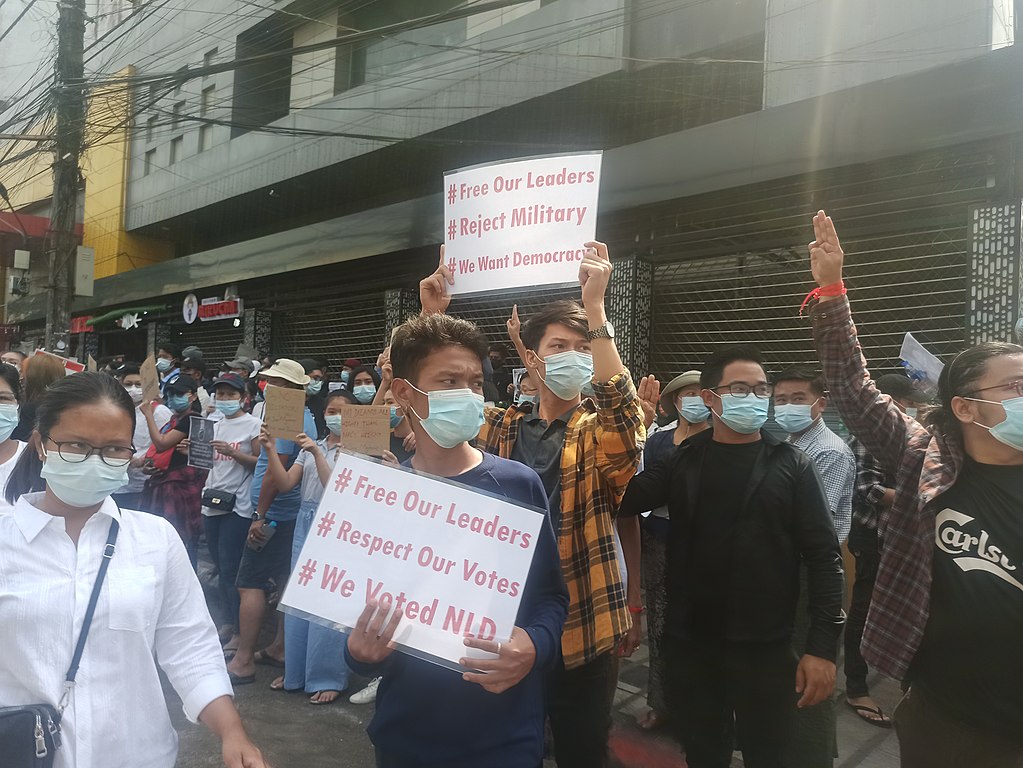
Myanmar protest. Image via Wikimedia Commons
The ability to strike back, to deliver millions of mutinies against the rich and powerful, should never be underestimated. But the brute fact is that social indignity undermines citizens’ capacity to take an active interest in public affairs. The slow road to democide doesn’t end there.
For when large numbers suffer social indignities, when in other words there’s a swelling in the ranks of those who feel ‘disesteemed’, as James Baldwin wrote, governments are in effect granted a licence to rule arbitrarily.
Starved of time, resources and self-respect, the humiliated become sitting ducks. They turn their backs on public affairs. Bellyaching becomes customary. The downtrodden and disaffected often do nothing but wallow in the mud of resignation. Cynical disaffection breeds voluntary servitude.
Equally sinister things can happen. Fed by a criminal reserve army of the poor, civil society can turn against itself, as in Mexico where severe poverty suffered by at least a third of adult citizens comes mixed with everyday corruption and lawlessness tipped with the fear and blood of murders, disappearances and alarming levels of mafia violence.
When the fabric of civil society becomes tattered and torn, the disesteemed may alternatively yearn for political redeemers and steel-fisted government. The powerless can even join hands with more privileged citizens to wish for a messiah who promises to put things right by empowering the poor, securing the wealth of the rich, ridding the country of corrupt politicians, fake news, terrorists, illegal immigrants and other people who don’t belong.
Demagoguery comes fully into season. Exploiting public ressentiment, leaders like President Kais Saied stop caring about the niceties of public accountability and constitutional power sharing. They prefer decrees, bragging that they are turning everything around, restoring the dignity of ‘the people’ and helping the whole country to recover its former glory.
But, in their hands, democracy begins to resemble a fancy mask worn by wealthy political predators. Slowly but surely, civil society is suffocated by the state. Cheered on by lapdog journalists, the strong-armed rule of rich and powerful business tycoons and populist messiahs flourishes. Phantom democracy becomes the new reality.
Earth’s revenge
The slowest form of democide – caused by the destruction of the living planetary environments in which humans dwell – should be the most worrying for democrats of all persuasions everywhere.
The anti-democratic effects of environmental degradation should make all democrats nervous. Some of the warning signs are fast-paced and ruthless. As if Earth’s revenge against its human destroyers, environmental shocks are sometimes marked by frightening quantum qualities that display a will of their own.
Huge wildfires burning uncontrollably through fields and forests, spitting black ash and illuminating night-time skies with flickers of blood orange light. Heatwaves so extreme that roads and railway tracks buckle and melt. Severe droughts. Atmospheric river-driven mega-storms cause extensive flooding, polluted and diseased water, landslides, and large-scale drowning and displacement of people, animals and other living creatures.
Such fast-paced convulsions get more media coverage than the slow-motion, often invisible, yet equally damaging ruination of our environments. Melting ice shields and glaciers. Desertification, as suffered in one-fifth of Spain. Mass fish die-offs in blighted rivers, shallowing and shrinking lakes and warming oceans. A looming insect apocalypse caused by enforced habitat loss, pesticide-heavy farming, toxic waste from mining operations and global warming (the population of flying insects alone has declined by nearly 60% in the UK during the past two decades). Irreversible damage to seasonal migration patterns, predator-prey food chains and nesting and breeding habitats of species by temperature stress and storm surges. The increased evaporation and acidification of lakes and oceans. Silent, invisible, unpredictable transmissions of zoonotic pathogens.
The rising awareness among citizens and environmental representatives that these multi-rhythm trends threaten the health of our planetary biosphere, and that remedies are urgently needed, is a significant political development. This ‘greening’ or ‘earthing’ of politics is something new in the history of democracy, an important political trend driven by many new media-savvy forms of public monitoring and representation of our planetary ecosystem.
In the age of monitory democracy, among the most well-known examples of these innovations are citizen science projects, coral reef monitoring networks, green think tanks, bio-regional assemblies, Earth-watch summits, climate strikes, climate justice flotillas and bodies such as the Global Virome Project on the lookout for zoonotic viruses already responsible for a long list of illnesses such as HIV, Ebola, Sars, Zika and swine flu. There are global bio-agreements like the Aarhus Convention and the Convention on Biological Diversity, rewilding schemes and zadiste/ZAD-style (zone à defender, zone to defend) occupations.
For the first time in the history of democracy, there are successful efforts to codify and enforce the ‘legal rights, powers, duties and liabilities’ of ecosystems, as in Aotearoa/New Zealand’s 2014 Te Urewera Act.
Will these public monitoring and bio-representation experiments survive the degradation of planetary ecosystems? Nobody yet knows. The jury is out on whether they are a case of too little, too late; or whether perhaps these biosphere-enfranchising experiments will be swept away by environmental convulsions, and by species destruction and other slow-motion disruptions.
For the moment, what’s certain is that the weakening and destruction of these public monitoring experiments would count as the most obvious instance of democide. If democracy, as Bruno Latour once remarked, ‘is even more fragile than the ecosystems of a coral reef’, then coral reef monitoring networks will surely lose their raison d’être when the death of whole reefs happens.
But that is not all. There are more immediately observable anti-democratic effects of the despoliation of our planet. Floods, fires, pestilences and extreme droughts are bad for democracy because citizens suffer injury and die (weather-related disasters have increased fivefold during the past half-century and are now on average robbing 115 people of their lives every day). Fear eats their souls.
Survivors are quarantined, told to keep their distance from others, dragged and pushed from their dwellings and habitats, supervized by police and army and emergency service units. In these emergency settings, opal-hearted citizens do their best to cope with disasters: food and clothing are shared; the elderly and children are comforted; pots and pans are banged and songs of solidarity sung during lockdowns.
Disasters can bring out the best in citizens, but as Thucydides noted in History of the Peloponnesian War from 431 BCE, when describing how the typhus plague that killed nearly a third of the citizens of democratic Athens wreaked political havoc, environmental shocks can desecrate democracy.
The most extreme weather event so far has been recorded in early September 2022 in Pakistan, showing how quickly the tapestry and tissues of trust and cooperation of civil society can be torn asunder by greed and corruption, fear and sickness.
During extreme environmental shocks, power manoeuvres flourish as well. Emergency rule is normalized: it’s what must for a time be endured, and what out of ‘necessity’ is in future to be expected. Governmentality consequently settles on citizens: slowly but surely, in the name of their ‘safety’ and ‘security’, people are encouraged to get used to the permanent administration of their lives. Compulsory solidarity, a type of solidarity described by Leszek Kołakowski as degraded by its coercive imposition, is standardized.
Among the gravest dangers of emergency rule, unless resisted, is the ‘stickiness’ of concentrated, arbitrary power. As temporary measures in exceptional circumstances, lockdowns and the banning of boycotts and public assembly easily become permanent arrangements.
Power granted is power conceded; and power relinquished is power reclaimed with difficulty. Emergency rule accustoms people to subordination. It’s the mother of voluntary servitude.
There’s another casualty of ecological disasters: among their least obvious but deepest effects is the way, slowly and invisibly, they destroy what Montesquieu termed the ethos or ‘spirit’, the lived customs and conventions of democracy. Books such as Albert Camus’s The Plague (1948) and José Saramago’s Blindness (1997) long ago reminded us that seasons of pestilence undermine public virtues and bring out the worst in humanity.
Their point applies to all eco-disasters, fast and slow. These cataclysms prove more disruptive and tragic than the uncivil strife pictured in Hobbes’ infamous state of nature exactly because they cut deeply into the biomes in which people dwell. Human brutishness is compounded by biometric destruction. Biomes can’t be taken for granted. Ruination is total. Not even the worms, spiders, grasshoppers and other tiny creatures that live humbly and honourably at the base of our local biomes are safe.
Nor are humans. Fair-minded equality is replaced by biometric rivalries: everyone for themselves, sauve qui peut, rich against poor, strong against weak, indifference, aggression or outright hostility towards others flourishes. Burden sharing – a practice so vital for democracy – is abandoned. Environmental injustice – unequal access to air, water, sun, shade – becomes the new normal. A democratically shared sense of wellness-in-the-world is destroyed. So too are aesthetic virtues that have an elective affinity with the customs and practices of power-sharing monitory democracy.
Environmental degradation gradually destroys the humbling ethic of wonder at the beauties and mysterious rhythms that humans had no hand in creating. Bio-destruction also breeds deep feelings of distress and silent mourning. Solastalgia is a neologism coined by Australian thinker Glenn Albrecht to capture the gradually overwhelming grief and insecurity, and feelings of powerlessness and fear of yet more calamities to come.
Democracy as self-restraint
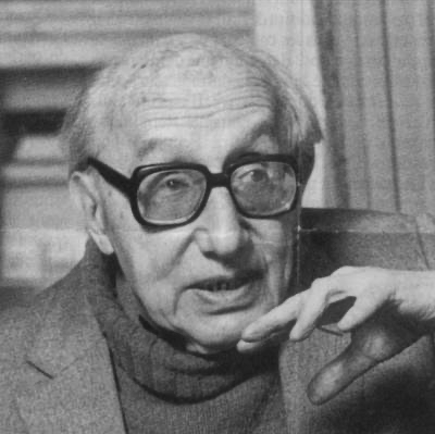
Norbert Elias. Photo courtesy of author
The distinguished sociologist Norbert Elias once observed that in matters of power and violence the political form known as democracy is special. It ‘requires a degree of self-control from the people belonging to it,’ he noted, ‘a measure of self-restraint which is not easy to introduce and which far surpasses the comparable demands made by a dictatorial regime’.
When seen in this insightful way, the destruction of democracy is the triumph of power unchained, exerted by a few over others and the biomes in which they dwell.
The sudden snuffing out of democracy by a military coup d’état, the more gradual dismantling of self-government, sometimes by demagogues acting in the name of ‘the people’, and the slow-motion social violence inflicted upon citizens by rich and powerful oligarchs are examples of the multiple ways and tempos in which democide happens.
But democide that happens adagissimo is the outcome democrats should fear most. No doubt, democracy perishes when citizens are forced to suffer the hubris of army generals, back-stabbing political operators, populist demagogues and wealthy, power-loving poligarch capitalists. Democracies also play dice with their own disappearance when citizens and their representatives thoughtlessly, blindly ignore not only the anti-democratic effects of extreme weather events, species extinctions, pestilences and other environmental emergencies.
They equally risk slow death when citizens fail to understand that democracy, the most anthropocentric ideal ever conceived, will have no future unless its ideals and practices are rid of the deep-seated prejudice that ‘humans’ live outside ‘nature’, whose own living and dying rhythms are now crying out for democratic recognition and respect.
Published 21 February 2023
Original in English
First published by Eurozine
© John Keane / Eurozine
PDF/PRINTIn collaboration with
In focal points
- Living dead democracy
- Why Parliaments?
- Spelling out a law for nature
- No more turning a blind eye
- The end of Tunisia’s spring?
- Protecting nature, empowering people
- Albania: Obstructed democracy
- Romania: Propaganda into votes
- The myth of sudden death
- Hungary: From housing justice to municipal opposition
Newsletter
Subscribe to know what’s worth thinking about.
Related Articles

After six months of protests, there are grounds for hope that the tide is turning in favour of the Serbian student movement: first, the unification of the opposition around the movement’s demand for new elections; second, the emergence of a strategic alliance between the students and the EU.

Outrage and moral panic have become driving forces in global politics – but what role should emotions play in democratic governance? On the new episode of Standard Time, researchers examine the influence of moral emotions and their implications for political life.
